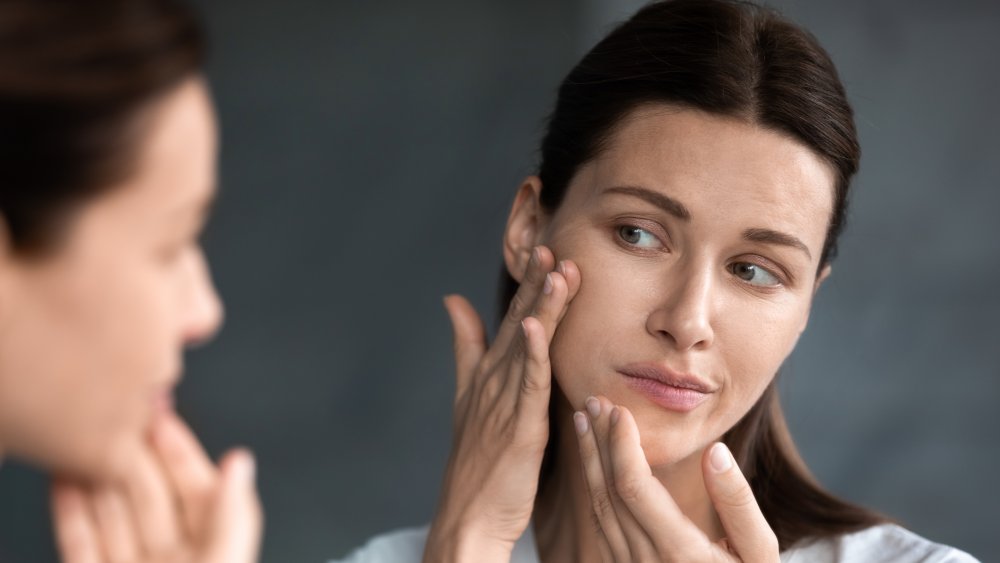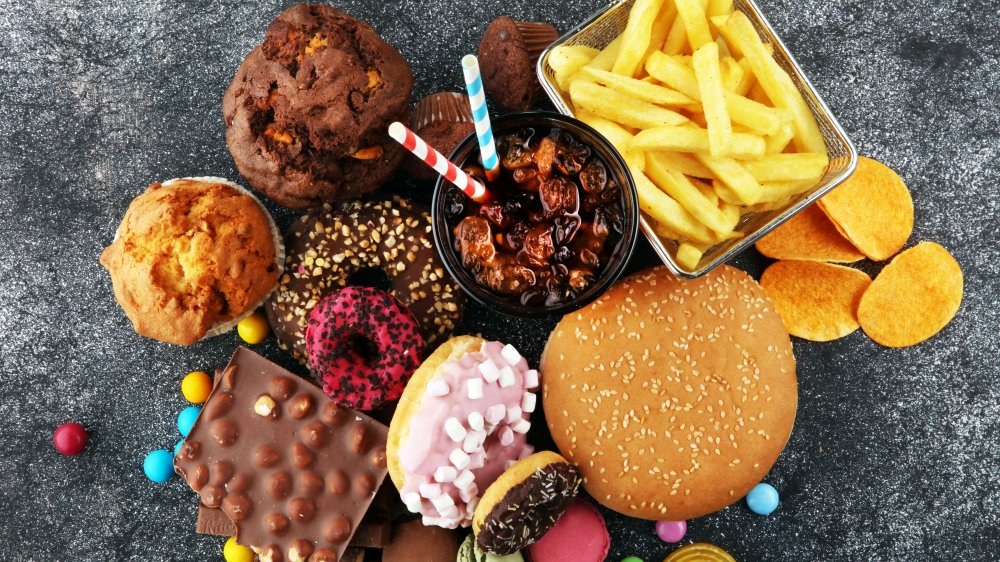Foods You Need To Stop Eating If You Have Oily Skin
Oily skin has always been a source of angst for teens. That's largely because of sebum production — the oily, waxy substance produced by the sebaceous glands — spikes during adolescence. The extra sebum, combined with dead skin cells, often leads to blocked pores and acne. Sebum production starts to decline around age 20 and continues to decrease with age, according to Verywell Health, although skin problems, including acne, can certainly continue past that point.
Although a person's skin type is largely determined by genetics, research supports the idea that diet can play a significant role in general skin health, as well as oil production specifically. If you're struggling with oily skin, here are the main culprits to avoid.
Foods that have a high glycemic index (or that cause a rapid rise in blood sugar), like sodas, refined grains (think white pasta or bread), or sugary treats like pastries should be avoided.
You should also cut back on processed vegetable oils. Some common vegetable oils, like soybean and corn oils, are high in omega-6 fatty acids. Since the average Western diet contains substantially more omega-6 than omega-3 fatty acids, experts believe this imbalance can lead to a state of inflammation which can make acne worse (via Healthline).
Certain foods can make oily skin worse
Dairy products have long been suspected of causing acne, and although there is some evidence supporting the suspicion, it doesn't seem to apply across the board. One study of almost 80,000 people between the ages of 7 and 30 did show that those who consumed even moderate amounts of dairy were more likely to have acne than those who did not consume dairy (via mindbodygreen). But many others seem to be able to enjoy dairy products without any adverse effects.
Lots of salt — like that found in greasy and processed foods, for example — can lead to dehydration, and that can be a problem for the skin. Patricia Boland, a dermatologist and Vice President of Research and Development at Colorescience UK, explains (via Byrdie), "Consuming excess salt can cause dehydration, water retention, swelling, and eye bags. It can also lead to an increase in oil levels as the skin tries to combat the dehydration caused by salt."
Sorry, but like salt, alcohol tends to dehydrate. Tess Mauricio, M.D., FAAD and CEO of MBeautyClinic.com, tells Insider, "It dehydrates the skin and will cause your wrinkles and pores to be more visible. Your skin will lose its natural plumpness and healthy glow." And again, to compensate for the lack of hydration, the skin produces even more oil.


